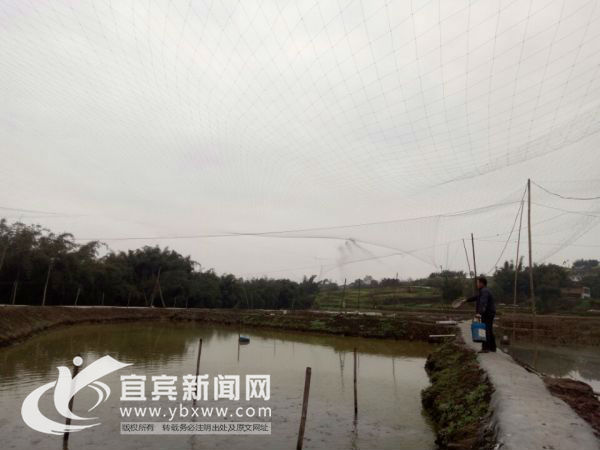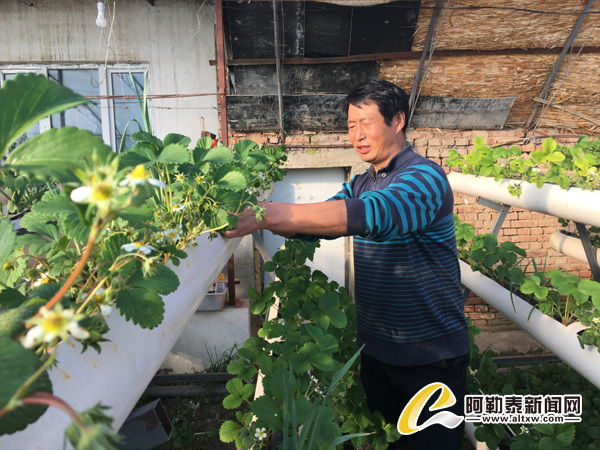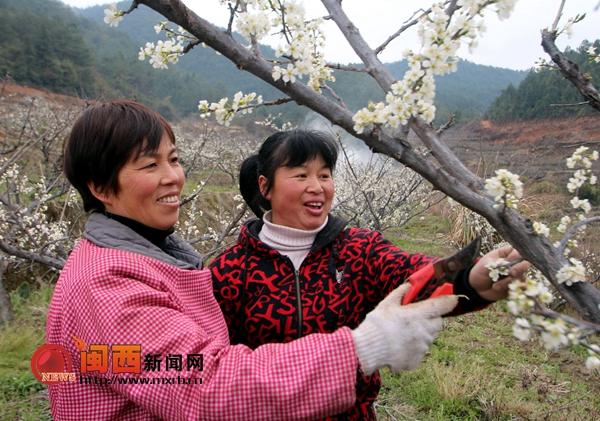The way for farmers to get rich when they return to their hometown to start a business.

Yang Hongquan is feeding Loach.
Yang Hongquan, 44, is from Shihe Village, Shahe Town, Gao County. In just three years, when he returned to his hometown to start a business, he "dug" a road to get rich from the idle farmland in the village. Nowadays, many farmland in the village are contracted by Yang Hongquan to raise Loach, with an annual income of about 300000.
Go out to inspect and return to your hometown to start a business.
Previously, Yang Hongquan has been working in other places. In 2013, Yang Hongquan came up with the idea of returning to his hometown to start a business in order to take care of the children and the elderly at home. "when we were young, we had a lot of wild Loach in the field, and we used to dig Loach in the field, but now the number of wild Loach is gradually decreasing, but the supply and demand for Loach in the market is still very large. We wondered if we could use the farmland at home to cultivate Loach."
According to Yang Hongquan, after deciding to try to cultivate Loach, he successively went to Jiangsu and Zhejiang, Chongqing, Neijiang, Leshan and other places to study their breeding experience and techniques. "after continuous investigation, I found that Loach is not only adaptable." the culture method is simple and easy to use, and the investment is small, and the culture benefit is very high, and the growth rate of Taiwan Loach is fast, which can be sold every three months. So I decided to try breeding. "
In 2014, Yang Hongquan bought 300000 seedlings from Leshan and started his way back to his hometown to start a business. "because he has been dealing with Loach from an early age, he has a better understanding of the life habits of Loach, coupled with the strong adaptability of Loach. The environment in the village is also very suitable for the growth of Loach, and it is relatively smooth at the beginning."
Artificial incubation.
Accumulate experience and study attentively
But the good times did not last long, and soon Yang Hongquan's Loach began to die in large quantities. "after careful observation, I found that most of the Loach's stomach floated upward on the surface of the water, the abdomen was swollen and listless. According to their symptoms, I looked up a lot of relevant information on the Internet and consulted relevant experts, and finally found the root cause of their disease-enteritis." Finding the root cause of the disease is, of course, the right remedy to the case. Yang Hongquan says that there are many causes of enteritis, such as excessive feed feeding, feed deterioration, weather changes, and so on. After this lesson, Yang Hongquan will actively pay attention to the prevention of various diseases of Loach in the process of breeding.
Yang Hongquan said that after entering the seedlings twice in the first year, he found that the survival rate of the seedlings was low and there was almost no profit after working for a year, which led Yang Hongquan to come up with the idea of studying the breeding of Loach seedlings. "in 2015, I checked a lot of data and found that Loach will eat its own eggs after laying eggs, so the survival rate of semi-artificial breeding is very low, so I decided to do experiments for artificial reproduction."
"We squeeze the eggs and sperm of Loach into a pre-cleaned basin at the same time to mix them well. After full fertilization, add clean water, rinse and sprinkle the fertilized eggs evenly on the sterilized fish nest. put into artificial incubator for hatching, after the success of the experiment, we began to carry out large-scale reproduction." According to Yang Hongquan, since he explored artificial reproduction, his Misgurnus anguillicaudatus culture is also gradually on the right track.
Loach in the field.
Drive villagers to develop ecological breeding
"at present, my Loach is mainly sold to Chengdu, Chongqing and other places, and the supply falls short of demand. At the same time, I also hope to drive the surrounding people to cultivate Loach together, increase the output, strive to meet the market demand, and drive more people to increase their income and become rich. " Yang Hongquan said. As Yang Hongquan's breeding is slowly on the right track, many villagers have also come to learn from him. Yang Hongquan will unreservedly pass on his accumulated experience to them and show them around his breeding base to guide them patiently and provide them with seedlings.
Wang Shulin, a villager in the same town, said that when he saw Yang Hongquan's Loach farming gradually on the right track in 2015, he came to consult Yang Hongquan's relevant experience, and Yang Hongquan was not stingy to share it with him. "at present, my own cultivation of Loach has more than one mu, do not need to invest too much energy, but also relatively easy to feed."
According to Yang Hongquan, the next step is to transform Loach farming into ecological farming. "there will be a great difference in taste between feed farming and ecological culture of Loach. Now we are studying how to effectively cultivate microorganisms. If we can cultivate microorganisms on a large scale to create ecological Loach culture, I believe Loach can also become a characteristic industry in the village."
- Prev

Fuhai County greenhouse Strawberry February Red Farmers increase income and smile
Fuhai County greenhouse Strawberry February Red Farmers increase income and smile
- Next

Ma Lianying, Sibao in Liancheng: a capable woman who grows fruits to get rich
Ma Lianying, Sibao in Liancheng: a capable woman who grows fruits to get rich
Related
- A course of planting techniques and methods on how to grow carrots
- How to plant the latest tulips?
- Is it better to pick tea in the morning or in the afternoon? When is the best time for tea to be picked? what is the third or fifth tea?
- Launch Yuanxiao Happy combination Haocha + Tea Yuan healthy Taste
- Penghu Tourism "Fireworks 20 Parade with You"
- 2022 West Lake Happiness holds "Digital Revitalization Voucher" and draws iphone13 and laptop.
- Banqiao Fuzhou social houses are designed to change start-up combined with police elimination to create a safe and livable environment
- The convenient measure of "mechanical weeding" in Xinbei has been abused and the Agriculture Bureau has imposed heavy penalties on the illegal land consolidation.
- Changgeng University Joins Hands with Four Memory Factories to Rescue Memory Talent Shortage
- The list of Taiwan's top 100 MVP managers is listed by the Director-General of the Farmers' Association of Sanxia District.

